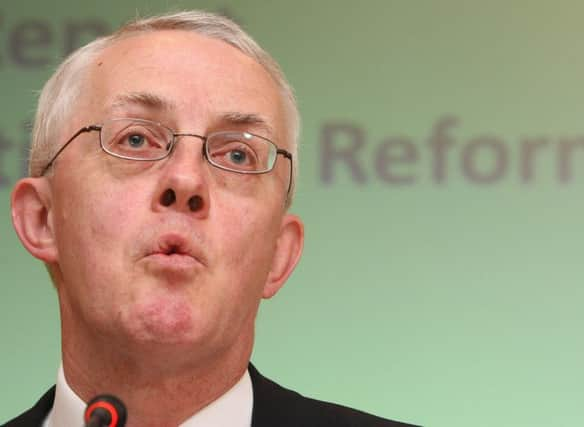Greg Wright: Have the banks really learned from their mistakes?


The banks themselves would love to believe that the years of turmoil are behind them, and they can get on with their jobs without being hounded by the media and regulators.
The Chancellor George Osborne wants Britain to remain an attractive centre for banks, and he must have been delighted when HSBC announced that it had decided to keep its head office in Britain, following a 10-month review.
Advertisement
Hide AdAdvertisement
Hide AdThere had been fears that HSBC might move back to its original home in Hong Kong.
We all hope, of course, that the chaos and pain associated with the financial crisis in 2008 will never be repeated.
But is there a danger that the events of eight years ago will be quietly swept under the carpet with no lessons learned?
People are always reluctant to acknowledge errors. Recent events have brought back memories of the painful period after the financial meltdown.
Advertisement
Hide AdAdvertisement
Hide AdThis is what I wrote back in November 2009, when outrage about banker bonuses was prompting the Labour Government to devise plans to destroy the “fat cat” culture:
“The cry that ‘something must be done’ soon acquires a hollow ring, and high-minded policies are usually throttled by red tape and the bland dictates of bureaucracy. We also live in a financial world where the moral hazard has become much greater, because banking executives know that the taxpayer – that’s us, dear reader – will always bail them out if they make a hash of their job.”
At the time, I was unconvinced that plans to toughen up the rules governing the financial services sector would make any real difference to the way the banks were run.
Today, my concerns about the regulatory regime seem to be shared by Sir John Vickers, the head of the Independent Commission on Banking (ICB).
Advertisement
Hide AdAdvertisement
Hide AdSir John warned that the Bank of England is not taking a tough enough line on how much equity capital commercial banks must hold against potential losses.
Sir John’s opinions must carry some weight, because his report in 2011 led to stricter laws aimed at reducing the damage from future bank collapses. Now he believes the Bank of England’s latest proposals on capital requirements do not go far enough.
“The Bank of England is proposing substantially milder equity requirements for British banks than did the ICB. The wisdom of this policy is questionable,” Sir John wrote in an opinion piece in the Financial Times.
Sir John said the Bank of England should play safe when it comes to equity capital levels. “No one knows the right answer,” he said. “Given the awfulness of systemic bank failures, ample insurance is needed, and equity is the best form of insurance.”
Advertisement
Hide AdAdvertisement
Hide AdEuropean banks’ share prices fell sharply last week, driven by fears that the lenders’ businesses were vulnerable in the current global economic climate.
Many UK banks have objected to the Bank of England’s capital requirements in the past, claiming that they impose unnecessary costs.
Mr Osborne has made a series of concessions to the City in recent months.
He said in last July’s Budget that he would gradually reduce the bank levy over the coming years.
Advertisement
Hide AdAdvertisement
Hide AdHe has also called for a ‘’new settlement’’ to end banker-bashing and he was widely reported to have played a role in the ousting of tough-minded Martin Wheatley, the head of City watchdog the Financial Conduct Authority (FCA) in July, raising concerns about political influence at the regulator.
Responding to Sir John’s comments, a Bank of England spokesman said: “The Bank of England continues to support the conclusions of the Independent Commission on Banking (ICB) but is proposing a higher level of capital and overall resilience in the banking system than was proposed by the ICB in their final report.
“The Bank of England’s proposals reflect the cost of the crisis and the benefits of more resilient banks, the new international standards on bank capital and bank resolution and the more active use of countercyclical tools. This judgement is informed by two years of severe but plausible stress tests. UK banks are now within touching distance of meeting these proposed new standards.
“On a comparable basis, globally systemic banks in the UK will be required to have 10 times more capital than before the crisis.”
Advertisement
Hide AdAdvertisement
Hide AdThe banks will probably argue they have undergone a radical cultural shift since the dark days of the financial crisis. But I have a horrible feeling that Sir John’s words will come back to haunt us when economic conditions become more challenging.